No products in the basket.
Mattresses
What are the types of mattresses?
When it comes to getting a good night’s sleep, having the right mattress can make all the difference. With various options available in the market, it’s essential to understand the types of mattresses including orthopedic mattress and their features to make an informed decision. In this article, we’ll explore the different types of mattresses, including the increasingly popular orthopedic mattresses, to help you choose the best one for your needs.
Table of contents
Innerspring Mattresses
Innerspring mattresses are one of the most traditional types, consisting of steel coils or springs layered between padding.
These mattresses provide a wide range of firmness options and are known for their support and durability.
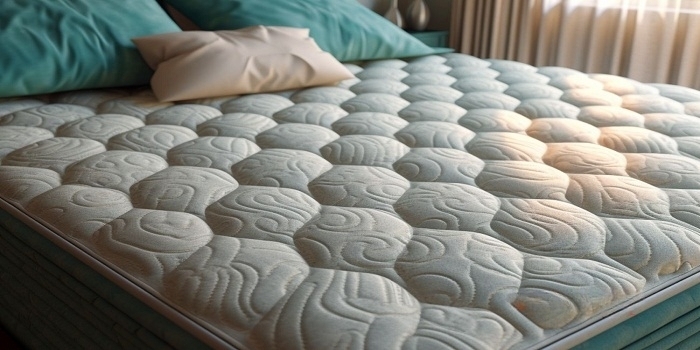
Construction and Features
The construction typically includes a top comfort layer made of materials like cotton, wool, or foam, followed by a layer of coils for support. Some variations may also include additional layers for enhanced comfort and durability.
Pros and Cons
Pros:
- Excellent support and durability
- Good airflow for temperature regulation
- Wide range of firmness options
Cons:
- Can be noisy due to coil movement
- May not offer sufficient motion isolation
Memory Foam Mattresses
Memory foam mattresses contour to the shape of your body, providing personalized support and comfort. They consist of viscoelastic foam that responds to heat and pressure, allowing it to mold
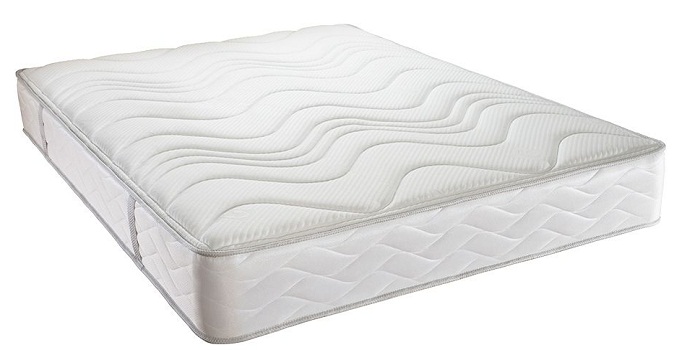
Construction and Features
These mattresses typically consist of multiple layers of foam, including a top layer of memory foam for contouring and pressure relief, followed by firmer foam layers for support.
Pros and Cons
Pros:
- Excellent pressure relief and motion isolation
- Conforms to the body’s shape for personalized comfort
- Minimal noise and good for couples
Cons:
- Can retain heat, leading to temperature regulation issues
- Initial off-gassing odor and potential for sagging over time
Latex Mattresses
Latex mattresses are made from natural or synthetic latex foam, offering a responsive and supportive sleeping surface. They are known for their durability and eco-friendliness, as natural latex is derived from rubber trees.
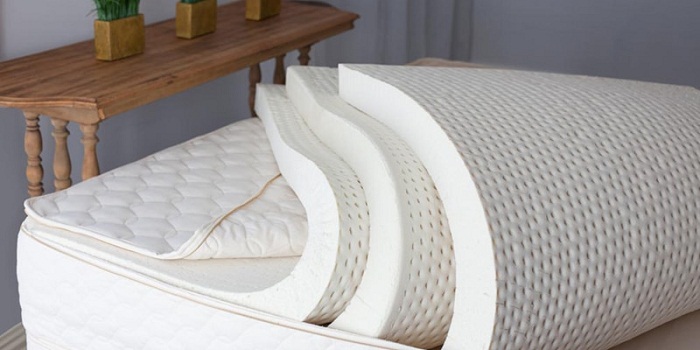
Construction and Features
Latex mattresses typically consist of latex foam layers, with options for natural, synthetic, or a blend of both. They may also include additional layers for added comfort and support.
Pros and Cons
Pros:
- Excellent durability and responsiveness
- Natural latex options are eco-friendly
- Good temperature regulation and breathability
Cons:
- Higher price point compared to other mattresses
- Limited availability and firmness options
Hybrid Mattresses
Hybrid mattresses combine the support of innerspring coils with the comfort of foam or latex layers, offering the best of both worlds. These mattresses are designed to provide targeted support and pressure relief.
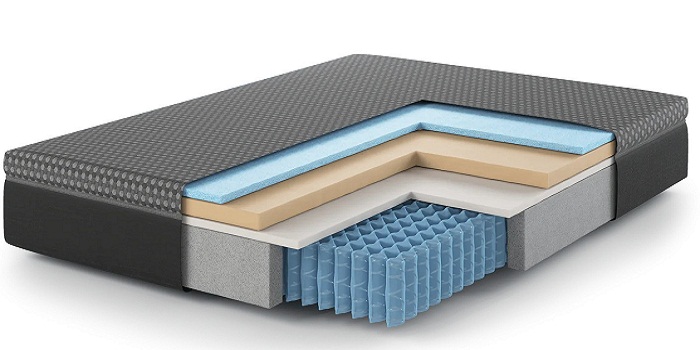
Construction and Features
The construction typically includes a layer of Segregated coils for support, topped with layers of foam or latex for comfort. Some hybrids may also include Further options like cooling gel or infused materials for temperature regulation.
Pros and Cons
Pros:
- Balanced support and comfort
- Enhanced motion isolation compared to traditional innerspring mattresses
- Suitable for a wide range of sleepers
Cons:
- Higher price point compared to traditional innerspring mattresses
- May be heavier and more difficult to move
Adjustable Air Mattresses
Adjustable air mattresses use air chambers to customize the firmness level according to individual preferences. These mattresses allow users to adjust the firmness on each side of the bed, making them ideal for couples with different sleep preferences.
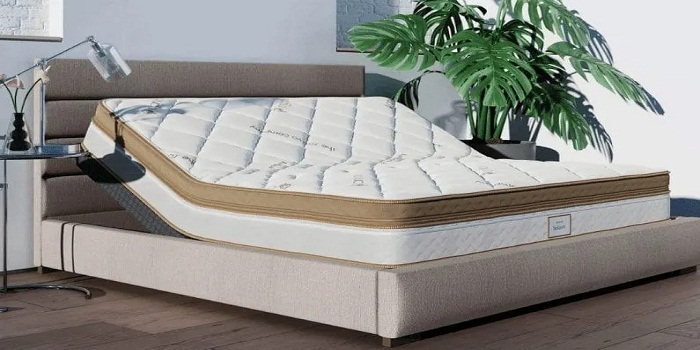
Construction and Features
The construction typically includes air chambers that can be inflated or deflated using a remote control or smartphone app. These mattresses may also include layers of foam or latex for added comfort.
Pros and Cons
Pros:
- Customizable firmness for individual comfort
- Ideal for couples with different sleep preferences
- Durable and long-lasting
Cons:
- Higher price point compared to traditional mattresses
- Requires electricity for inflation and deflation
Orthopedic Mattresses
Orthopedic mattresses are designed to provide targeted support for the spine and joints, making them ideal for individuals with back pain or orthopedic issues. These mattresses are engineered to promote proper alignment and relieve pressure points during sleep.

Construction and Features
Orthopedic mattresses may feature specialized materials like memory foam or latex with added lumbar support zones. They are designed to distribute weight evenly and reduce strain on the body.
Pros and Cons
Pros:
- Provides targeted support for back pain and orthopedic issues
- Promotes proper spinal alignment and reduces pressure points
- Can improve sleep quality for individuals with chronic pain
Cons:
- Higher price point compared to standard mattresses
- Limited availability and firmness options
Choosing the Right Mattress for Your Needs
When selecting a mattress, consider factors such as your preferred sleeping position, body weight, and any specific health concerns. Take advantage of trial periods offered by mattress companies to ensure the mattress is the right fit for you. Remember, investing in a quality mattress is investing in your overall health and well-being.
| Factors to Consider | Explanation |
| Preferred Sleeping Position | Your sleeping position greatly affects the type of mattress you need. Side sleepers typically benefit from a softer mattress to cushion pressure points, while back and stomach sleepers may prefer a firmer surface for better spinal alignment. |
| Body Weight | Your body weight determines how much support you need from your mattress. Heavier individuals may require a firmer mattress to prevent sinking and maintain proper alignment, while lighter individuals may find a softer mattress more comfortable. |
| Specific Health Concerns | If you have specific health concerns such as back pain, arthritis, or allergies, consider a mattress with features designed to address these issues. Memory foam or latex mattresses can provide excellent pressure relief for those with joint pain, while hypoallergenic materials can help minimize allergy symptoms. |
| Trial Period | Many mattress companies offer trial periods, allowing you to test the mattress in your own home before making a final decision. Take advantage of these trials to ensure the mattress meets your comfort and support needs. |
| Overall Health Investment | Investing in a quality mattress is investing in your overall health and well-being. A good night’s sleep is essential for physical and mental health, so prioritize finding a mattress that promotes restful sleep and proper spinal alignment. |

Conclusion
Understanding the different types of mattresses available can help you make an informed decision when shopping for a new bed. Whether you prefer the traditional support of an innerspring mattress or the personalized comfort of memory foam, there’s a mattress out there to suit your needs. Consider your sleep preferences, budget, and any specific health concerns to find the perfect mattress for a good night’s sleep.
Read More What are the types of mattresses?
Unique FAQs
Are orthopedic mattresses only for people with back pain?
While orthopedic mattresses are designed to provide targeted support for back pain, they can also benefit individuals with joint pain or other orthopedic issues.
Do memory foam mattresses retain heat?
Memory foam mattresses can retain heat, but many modern models feature cooling gel or breathable materials to address temperature regulation issues
How long do mattresses typically last?
Mattresses generally have a lifespan of around 7 to 10 years, but this can vary depending on factors such as mattress quality, usage, and maintenance.
What is the importance of mattress firmness?
The firmness of a mattress plays a crucial role in determining comfort and support. It affects spinal alignment, pressure relief, and overall sleep quality.

